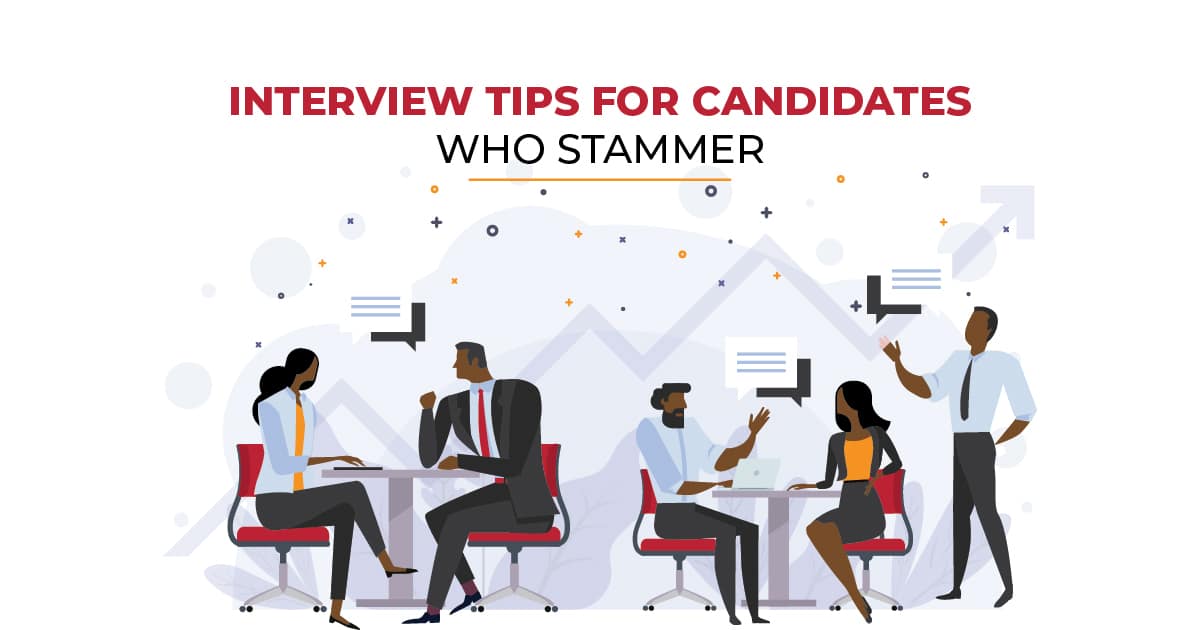Interview sessions are usually characterized by high tension and the pressure to impress in order to rise above the competition of peer job seekers eyeing the same position. For individuals who stammer in interviews, the tension usually grows higher, especially for first-timers or those who consider themselves shy. Some have lost valuable opportunities because they got scared and failed the interview sessions, or did not attend the interviews all together owing to the fear of looming failure.
It is wise to remember that interviews are inevitable for career growth and success in your area of passion. This means that one way or another, you have to master your condition and learn to control it. Stammering does not have to be an impediment to your chances of getting a dream job, you only need to handle interviews in an honest, confident and positive way. Make the interviews about creating the best impression despite the difficulty in fluency.
The steps below show you how;
Know yourself well

Stammering is a part of you that you cannot wish away. The best way to go about it is fully understanding your condition and accepting it. Identify the triggers that make you stammer. Is it when you are nervous? When you are angry? When you are under pressure or tension? Pinpointing the triggers helps you become more in control of your condition and helps you know how to manage it.
Prepare and work towards control
Once you have accepted that you stammer, you can now begin on improving your self-confidence. Never view it as a disability. Rather, view it as a condition you can master and overcome. Begin working on becoming a better communicator. This can be done through role playing and mock interview sessions. It helps make interview sessions familiar and something you are comfortable doing. Remember that you could be the best person for this role, who just happens to stammer.
Work on your self- confidence, maintain eye contact when speaking to people and go through the common interview questions to be ready. Being ready helps eliminate some of the tension and pressure and makes you concentrate on making a good impression to the interview panel.
Work on your communication skills

It is wise to remember that talking is just a small part of the communication process. A good communicator should be able to master all aspects of communication that include; listening, writing and reporting skills, ability to emphasize with what someone is saying, appropriate body language, diplomacy and thoughtfulness, clarity of voice and appropriate intonation. All these aspects have to be in harmony with what someone says for them to be considered an excellent communicator. Mastering these aspects like active listening and body language management takes a lot of practice, repetition and conscious effort. Excelling in these aspects will make you a good communicator and minimize the impact of stammering to your listeners.
How to make a good impression during the interview
- Prepare adequately for the interview
- Conduct sufficient research on the role and the company
- Dress in a professional way that brings out your professional brand
- Arrive on time for the interview
- Be confident and maintain eye contact
- Nervous? Take deep breaths and try to relax
- Remain positive even when you encounter negative comments
- Ask for time to finish what you are saying in case of interruptions by the panel
- Don’t try hiding your stammering, it will only make it worse. Instead concentrate on why you are the best for the job
- Take things slow. Talk slowly and deliberately. Do not allow anyone to hurry you.
- Answer every question in a direct and exhaustive way.
- Mind your body language. Maintain a positive attitude and aura.
- Maintain your focus on the interview, even when you feel like the interviewer is attacking you or being negative. Always remember that you are not responsible for anyone’s attitude but your own.
Should you talk about your stammering?

Whether or not you talk about your stammering depends on the extent of the condition. This is why self-awareness is key. If your stammering is low to medium and only manifests in the face of triggers like anger, tension, nervousness, you do not need to tell your interviewer. You only need to ensure that you steer clear from the triggers.
However, if you stammer every time you talk or you feel that you are most likely to stammer in the interview, basing on your tension levels; the best way to go is giving the interview panel a heads up. In such a situation, it is best to introduce your stammering instead of letting it introduce you. This way, you have greater control of the situation.
You can introduce it right at the beginning when a question like tell us about yourself is asked. It allows the interview panel to show patience, tolerance and understanding right from the beginning. You might say; “Hi, my name is Mary. As you can tell, I am a person that sometimes stammers. I prefer to mention this in interviews so that my interviewer understands my repetitions, or blocks of silence to ensure that they do not mistake it for anything else. Other than that, I have a degree/diploma……”
Or you can casually say it like ‘Just so you know, I sometimes stammer. I am very okay with it. I hope you are too.” The most likely answer from interviewers usually is “of course..”
You can also list stammering as one of your weaknesses and show how you are working on managing it and how it has helped you improve in virtues like patience, understanding and empathy to others.
Do not try to pretend that you don’t stammer, it creates a very awkward situation during the interview session as the panel now begins wondering what you are trying to say. At the same time, be careful not make stammering the main topic of discussion or focus in the interview. Always remember that your main goal is to show the interview panel how you are the best person for the job.





